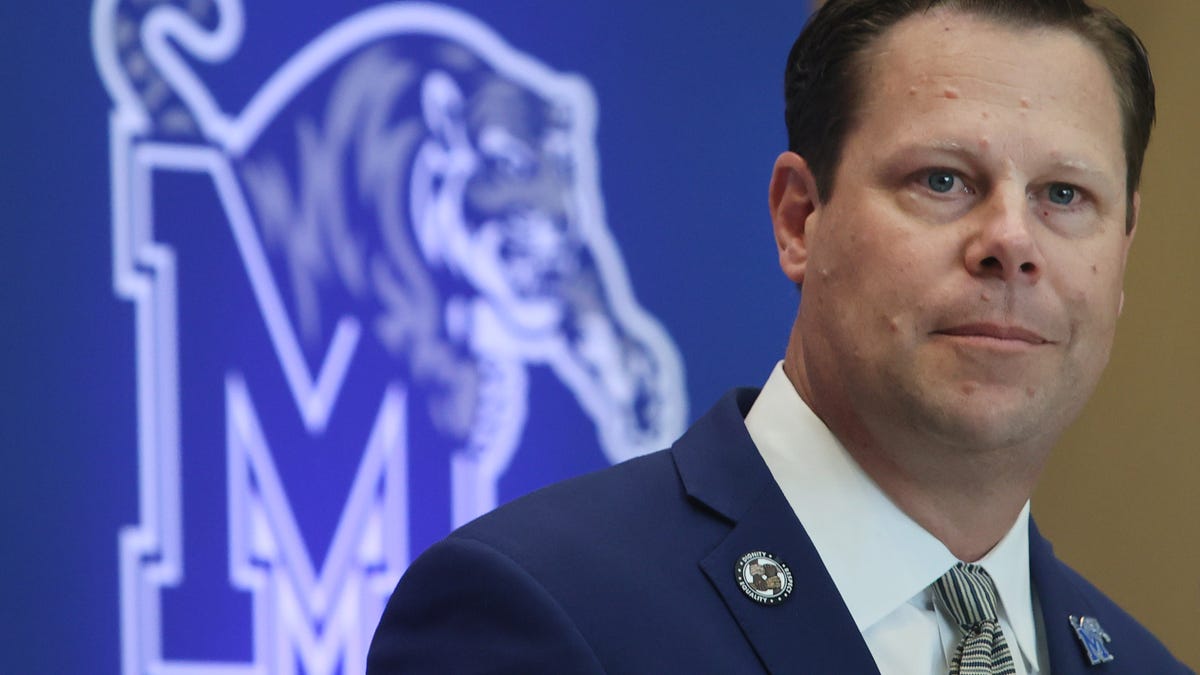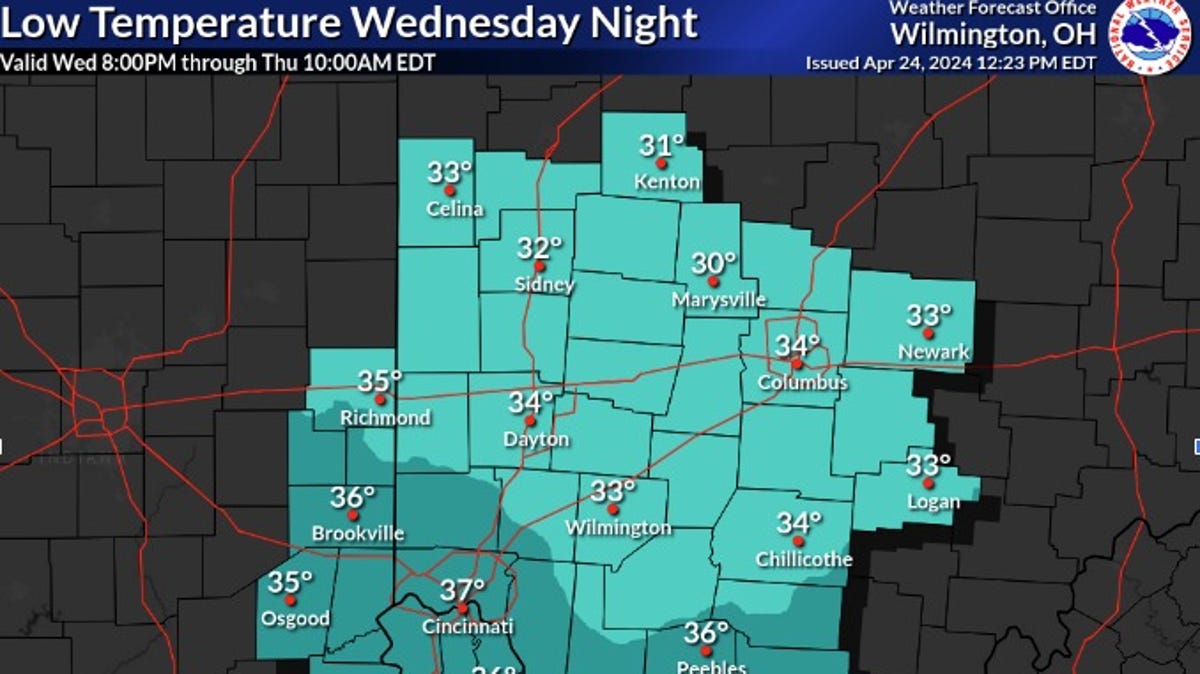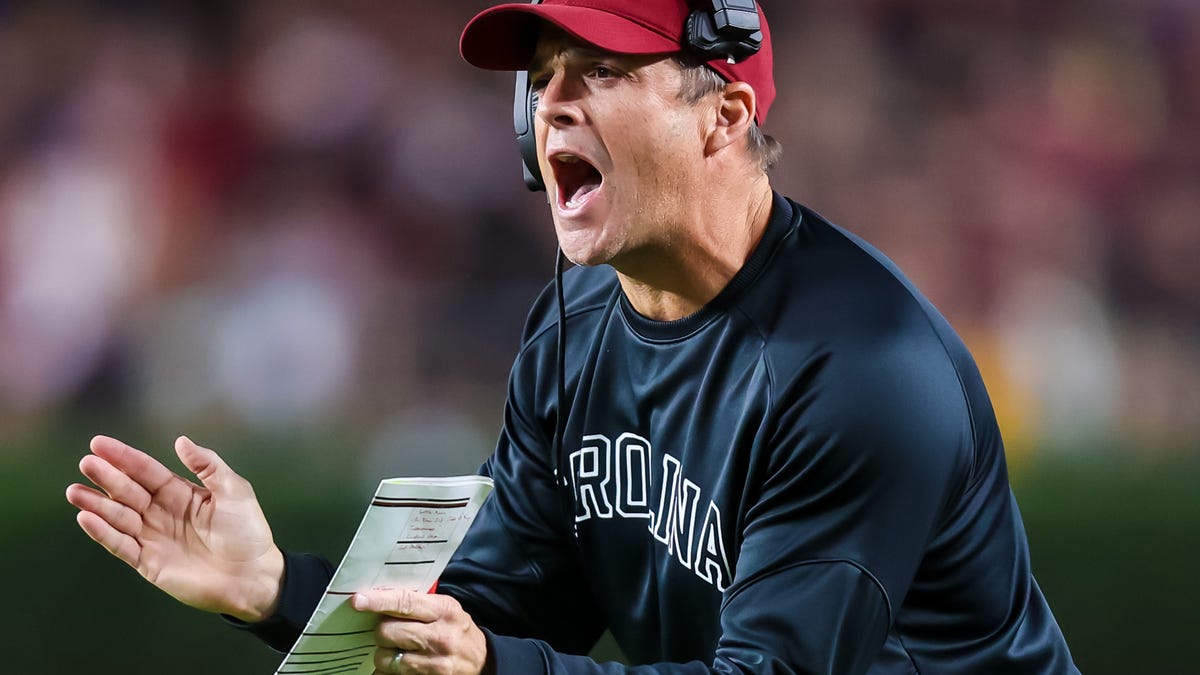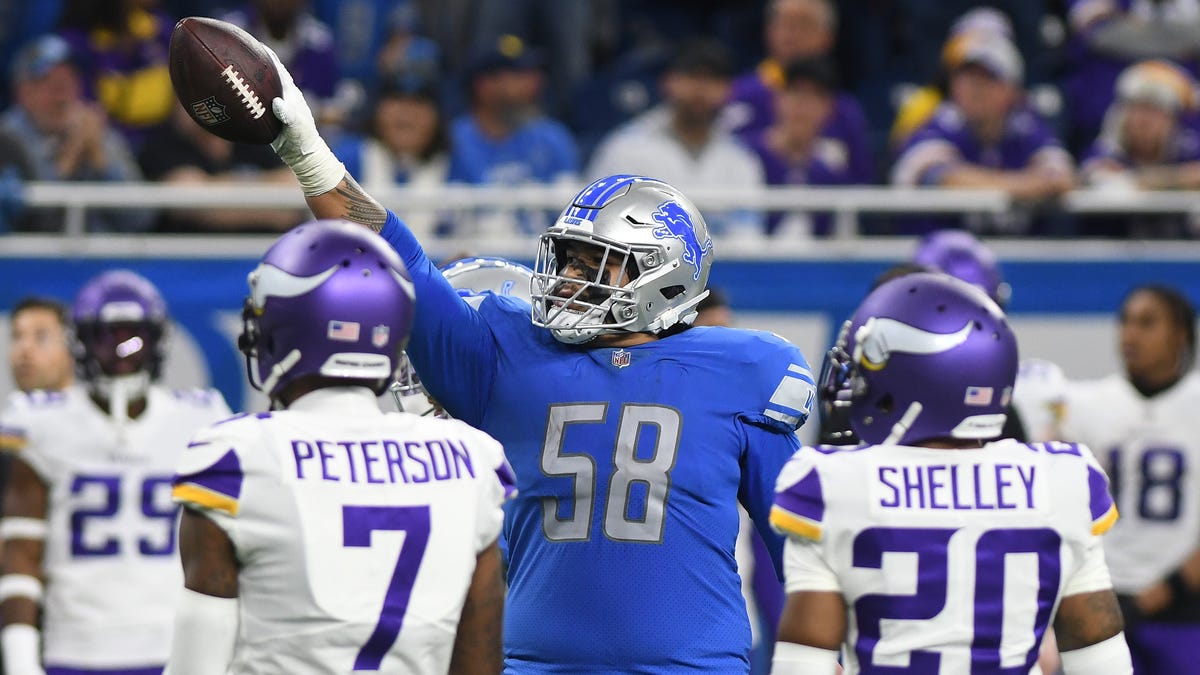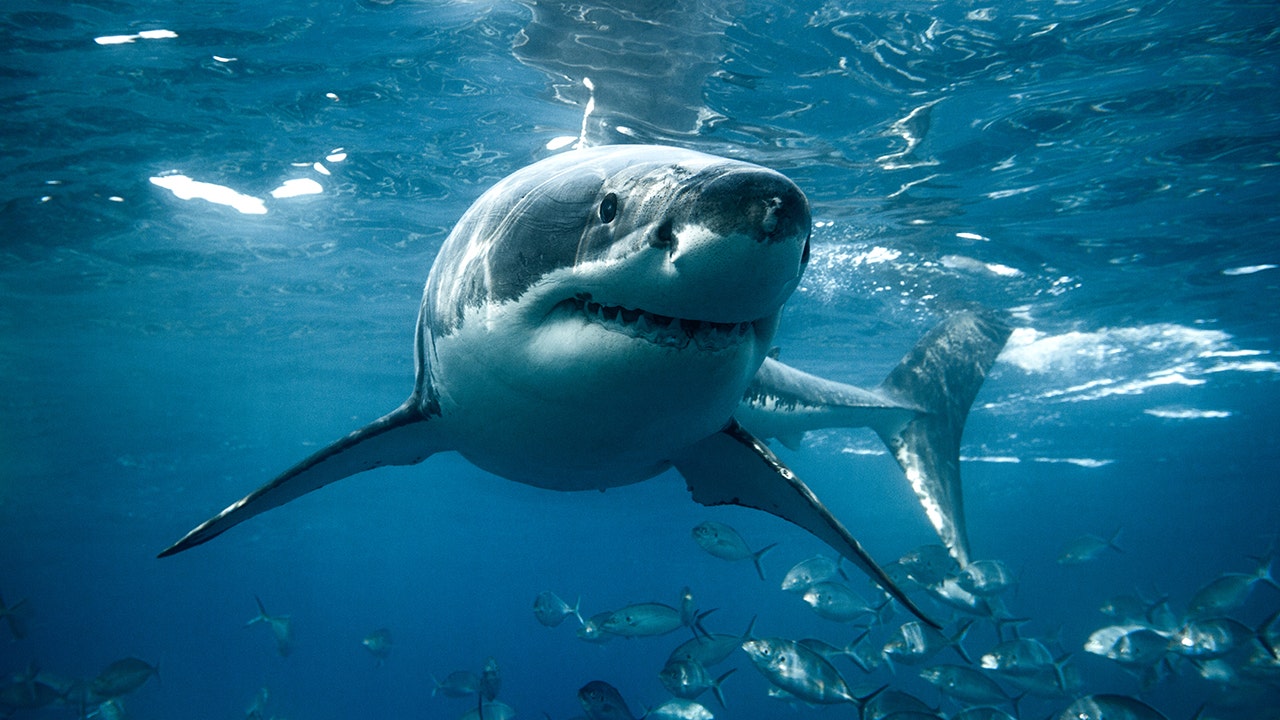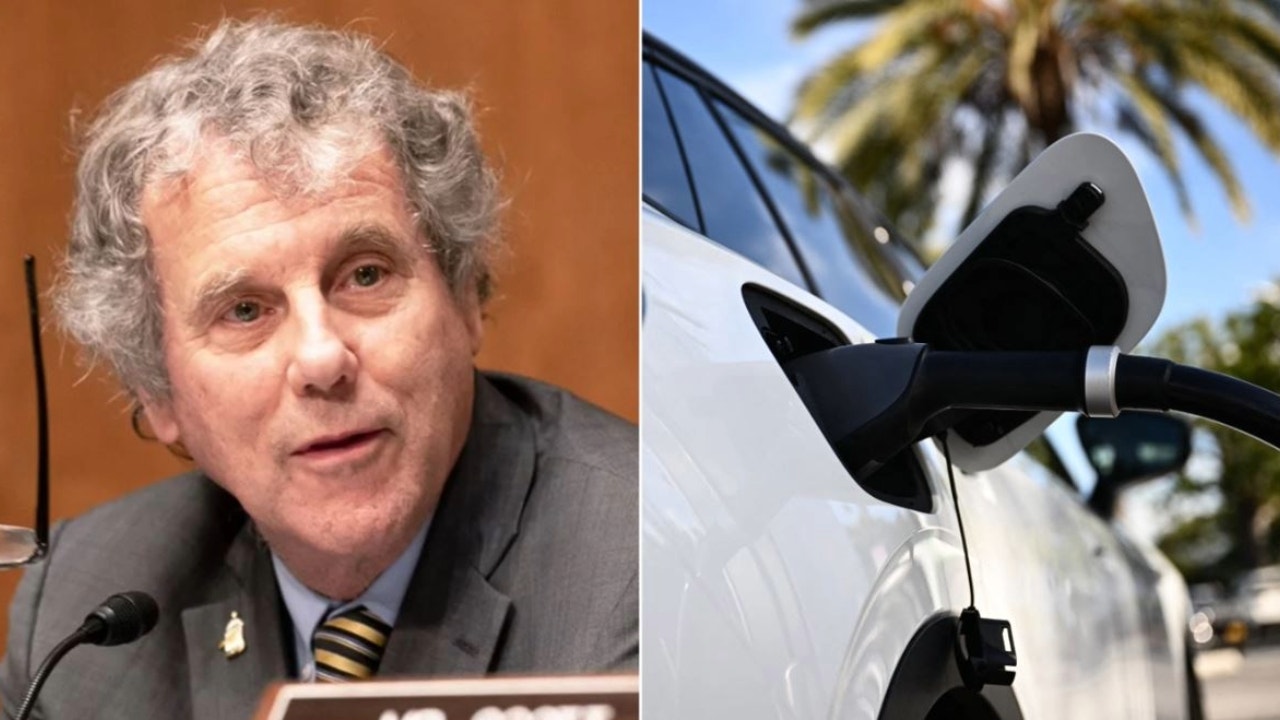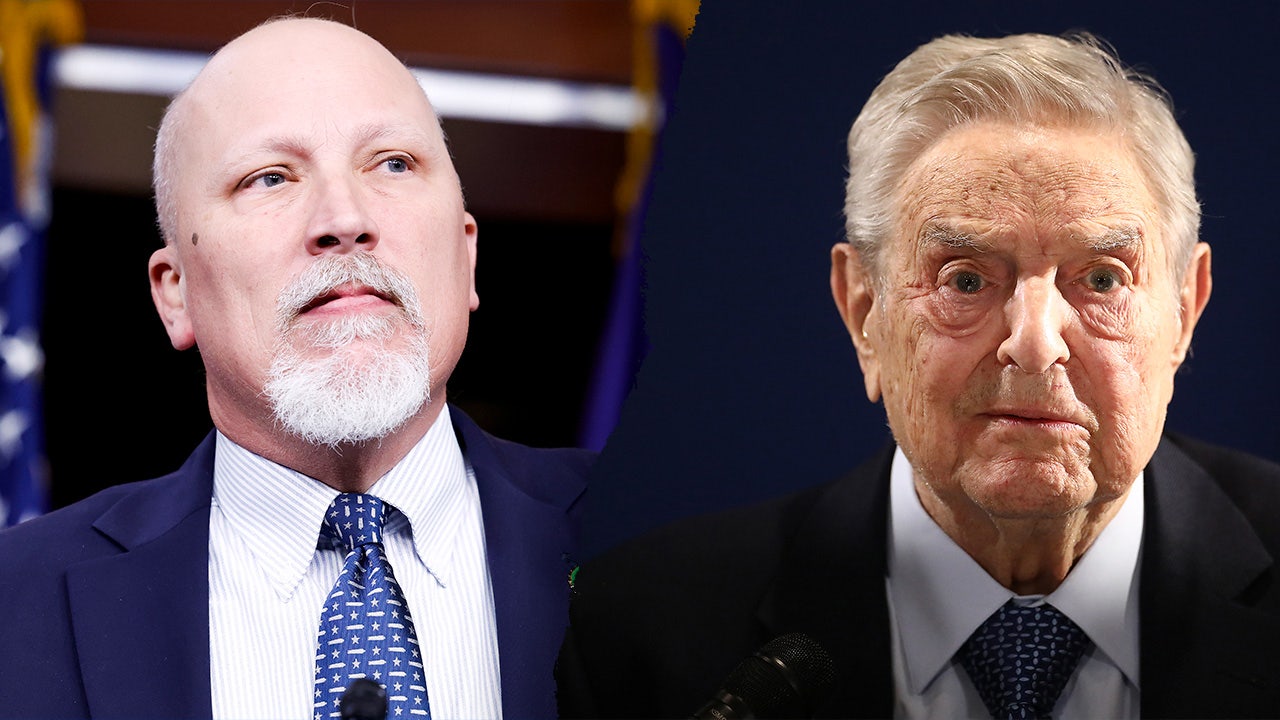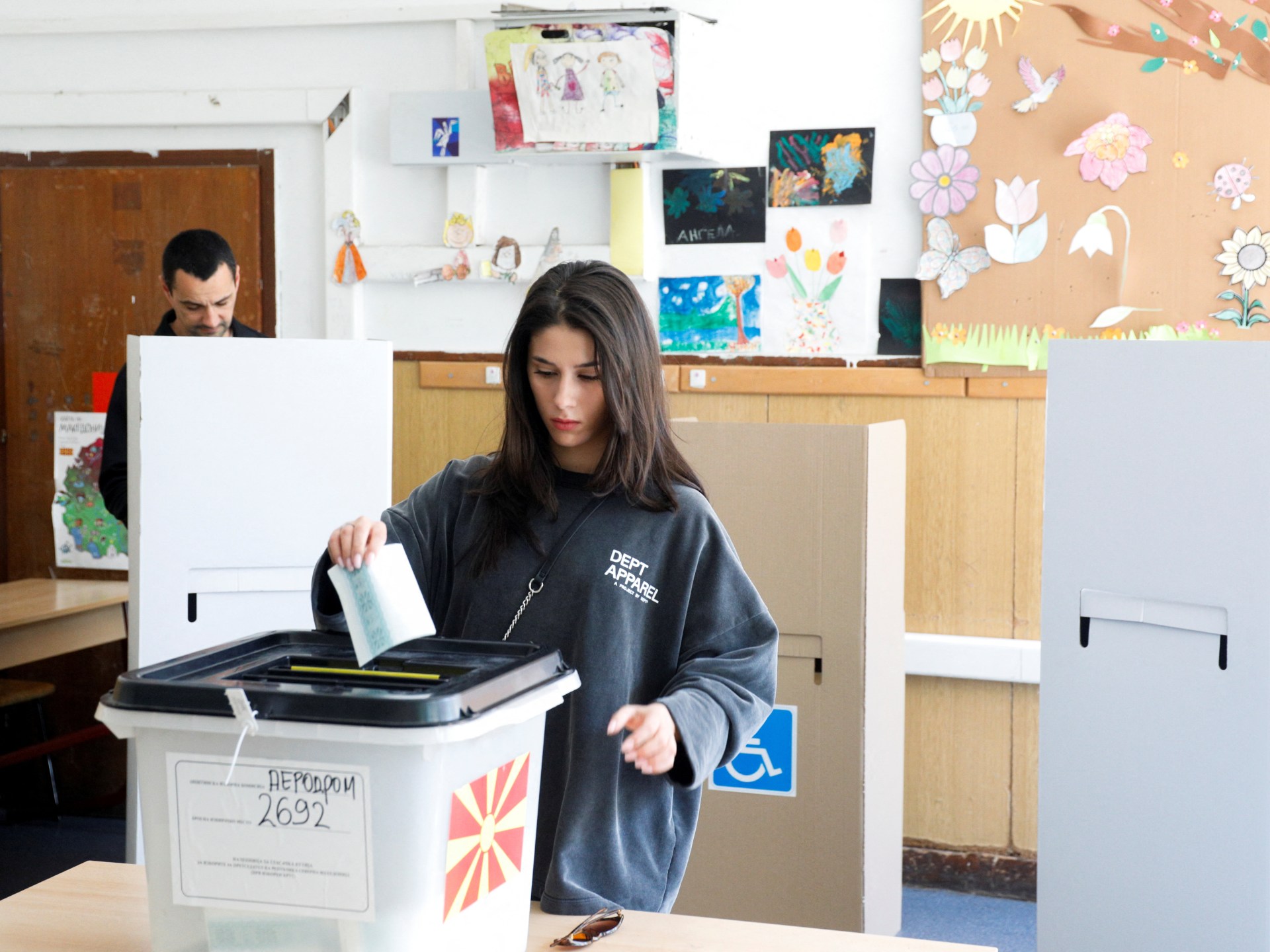World
French energy giant signs new natural gas deal with Qatar
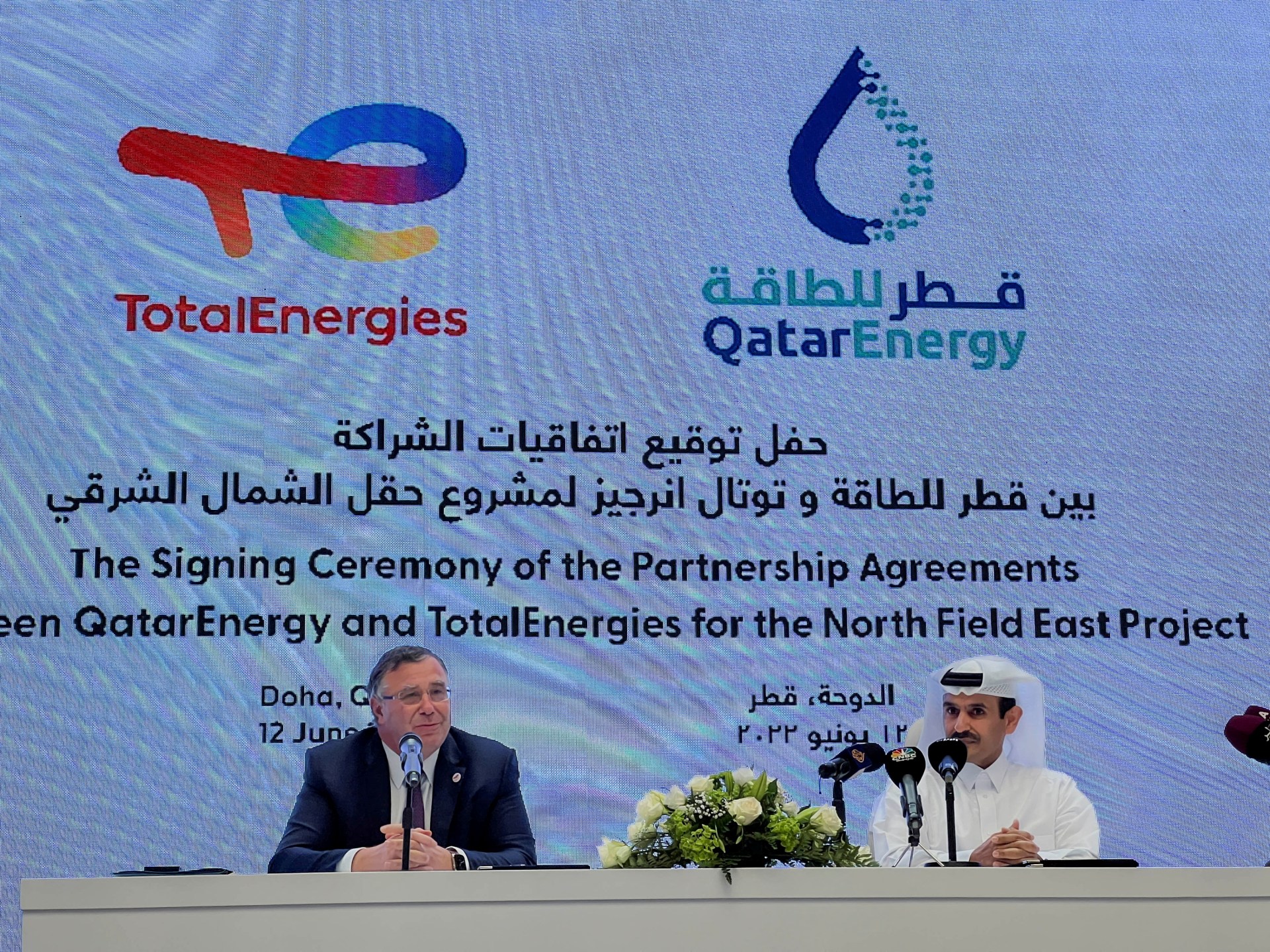
TotalEnergies turns into the primary international investor in Qatar’s North Area South gasoline venture as Europe scrambles to seek out new power sources.
France’s TotalEnergies has signed a brand new funding deal in Qatar’s pure gasoline manufacturing enlargement as Europe scrambles to seek out new power sources to exchange Russian provides.
Talking alongside TotalEnergies chief govt Patrick Pouyanne on Saturday, Qatar Vitality Minister Saad Sherida al-Kaabi introduced the French power large could have a 9.3 % stake within the North Area South gasoline venture, changing into the primary international accomplice in that part of the huge subject.
“QatarEnergy is transferring ahead, to assist meet [the] rising international demand for cleaner power,” al-Kaabi stated, referring to the state-owned petroleum firm. Liquefied pure gasoline (LNG) is seen as a cleaner different to gasoline oil and coal and a stepping stone within the power transition.
The venture will increase Qatar’s LNG capability to 126 million tonnes.
Al-Kaabi stated TotalEnergies would additionally assist to finance the extraction of gasoline from North Area South, for which 25 % can be reserved for international power corporations.
The funding deal comes after TotalEnergies agreed in June to a $2bn deal to participate within the large North Area East venture, which can assist Qatar improve its LNG manufacturing by greater than 60 % by 2027.
Shell of the UK, Eni of Italy and United States giants ConocoPhillips and ExxonMobil have additionally signed as much as be a part of the North Area East venture.
Pouyanne stated TotalEnergies would have taken a much bigger chunk of the manufacturing if it was attainable. “Many of the leaders of the world have found the phrases LNG,” he stated. “For safety of provide, there’s a value.”
Qatar and Germany have additionally been holding discussions on provides of pure gasoline. Kaabi is scheduled to fulfill German Chancellor Olaf Scholz on Sunday.
Scholz arrived within the Saudi metropolis of Jeddah on Saturday, the primary cease of his two-day Gulf tour for talks on power cooperation.
Al-Kaabi additionally confirmed Doha was in talks with the UK.
The Gulf nation is without doubt one of the world’s high LNG producers, alongside the US and Australia, and LNG from North Area is anticipated to begin approaching line in 2026.
QatarEnergy estimates that North Area holds about 10 % of the world’s identified pure gasoline reserves.
The reserves prolong underneath the ocean into Iranian territory, the place Tehran’s efforts to use its South Pars gasoline subject have been hindered by worldwide sanctions.
South Korea, Japan and China have been the primary markets for Qatar’s LNG. However since an power disaster hit Europe final 12 months, the Gulf state has helped the UK with additional provides and introduced a cooperation cope with Germany.

World
TVLine Items: ID’s Nick and Aaron Carter Docuseries, Outlander Prequel Cast Additions and More

ad
World
Russia sinks space nuke ban at UN amid rumors of Putin's orbital weapon
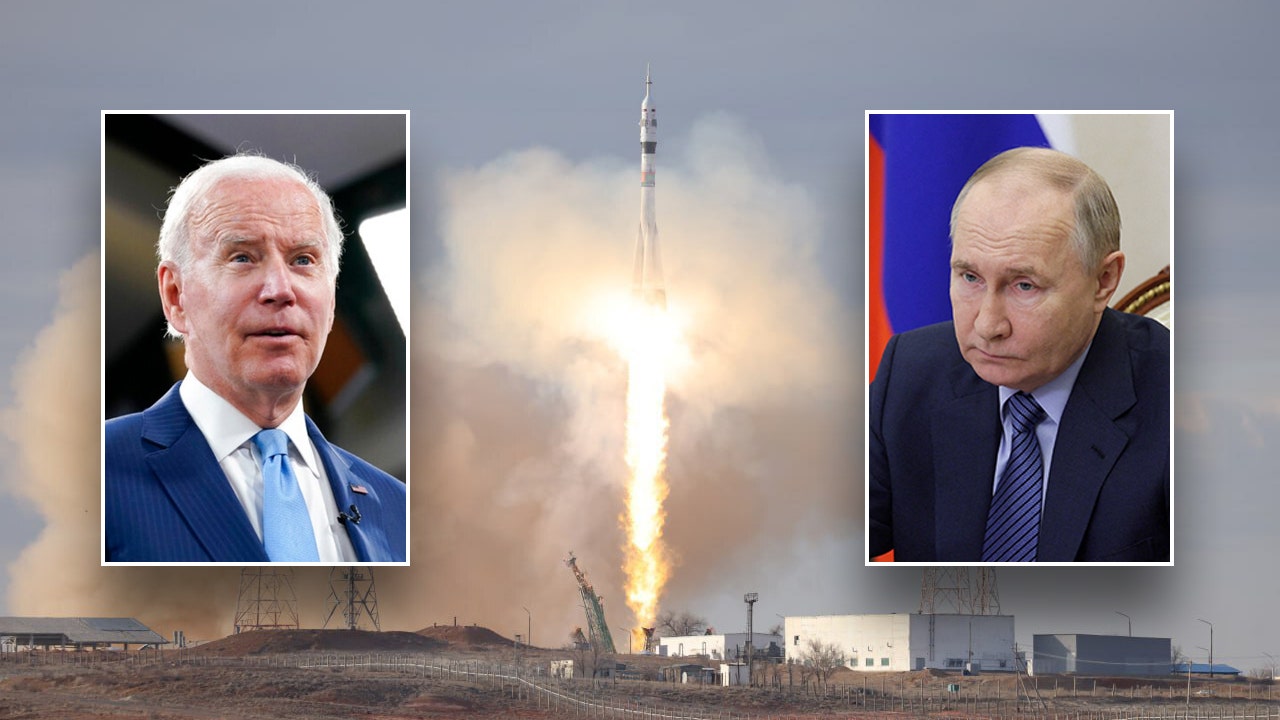
A U.S.-led resolution that would prevent using nuclear weapons in outer space received dozens of co-sponsors, but Russia vetoed the measure amid reports it has deployed a weapon that can destroy satellites.
“The detonation of a nuclear weapon in space would destroy satellites that are vital to communications, agriculture, national security, and more worldwide, with grave implications for sustainable development, and other aspects of international peace and security,” the U.S. Mission to the United Nations wrote in a press release prior to the vote.
“The diverse group of cosponsors of this resolution reflects the strong shared interest in avoiding such an outcome,” the statement read. “We join these Member States in calling on the Security Council to meet this moment today and adopt the resolution unanimously, consistent with its mandate to maintain international peace and security.”
The U.S. and Japan presented the resolution to the U.N. Security Council for a vote on Wednesday, but Russia shot the measure down. Prior to the vote, Russia’s Deputy U.N. Ambassador Dmitry Polyansky reported that his country’s initial impression was that the resolution served as “yet another propaganda stunt by Washington” and called it a “very politicized” effort “divorced from reality,” The Associated Press reported.
GOVERNMENT’S REFUSAL TO DECLASSIFY UFO DOCS IS A ‘COVER-UP’ COSTING TAXPAYERS MILLIONS: GOP CONGRESSMAN
The draft resolution, which received backing from 60 member states, states that “the prevention of an arms race in outer space would avert a grave danger for international peace and security.” It affirms that countries that ratified the 1967 Outer Space Treaty must comply with their obligations.
A Security Council meeting at United Nations headquarters, March 22, 2024. (Getty Images)
The tug-of-war over hypothetical space-based weapons follows claims from the White House in February that Russia had deployed a “troubling” anti-satellite weapon – though no one has yet confirmed the weapon is operational or even in a testing phase.
SOLAR-POWERED, UNCREWED FLIGHTS ARE THE ‘FUTURE’ OF AVIATION: ROBERT MILLER
The weapon would allegedly be capable of destroying satellites by creating a massive energy wave when detonated, Foreign Policy reported. The weapon could therefore potentially cripple countless other satellites that serve both commercial and government purposes, including cellphone use and internet access.
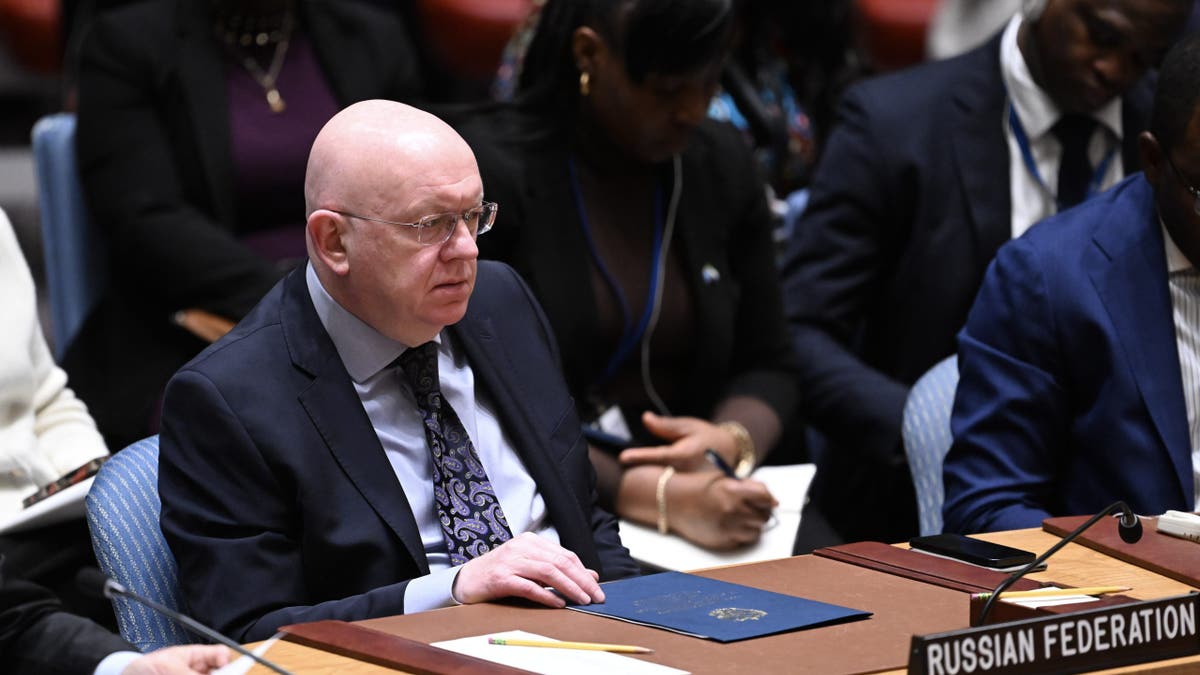
Vassily Nebenzia, Russia’s permanent representative to the U.N., attends a Security Council meeting at U.N. headquarters in New York City on April 14, 2024. (Fatih Aktas/Anadolu via Getty Images)
Russia at the time argued that it would uphold the international 1967 treaty, which bans the deployment of “nuclear weapons or any other kinds of weapons of mass destruction” into orbit or the stationing of “weapons in outer space in any other manner.”
“Our position is quite clear and transparent: we have always been and remain categorically opposed to the deployment of nuclear weapons in space,” Russian President Vladimir Putin said in February. “Just the opposite, we are urging everyone to adhere to all the agreements that exist in this sphere.”
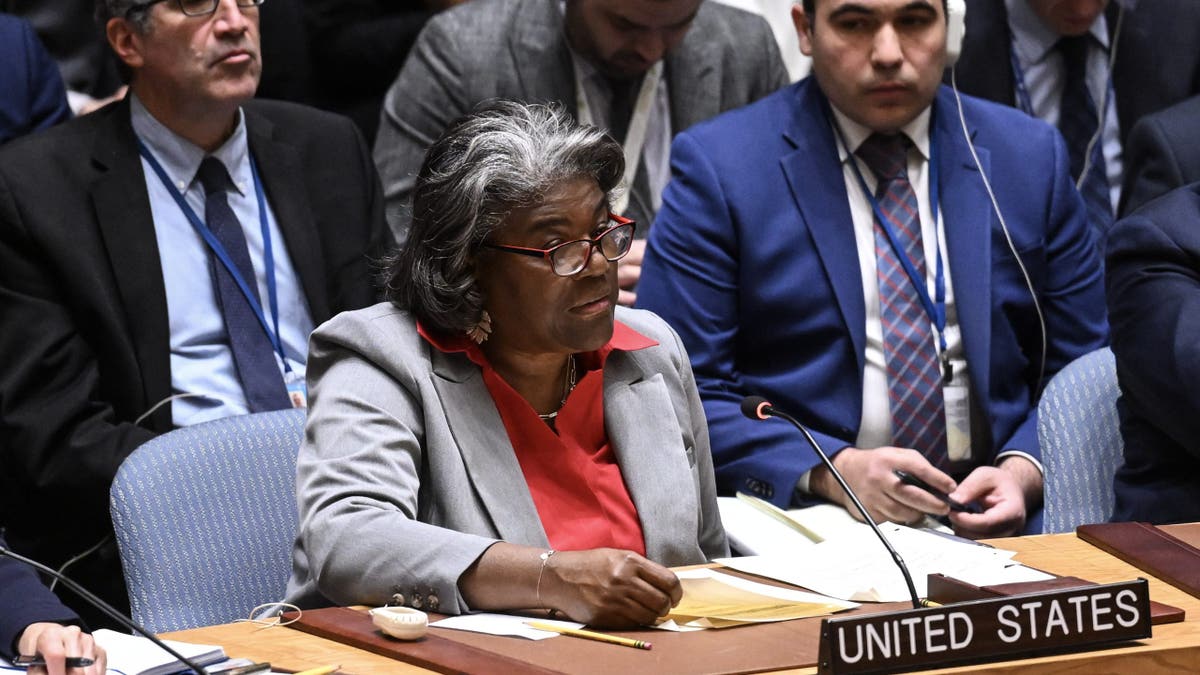
Linda Thomas-Greenfield, the U.S. ambassador to the U.N., attends the Security Council meeting to demand an immediate cease-fire in Gaza on March 25, 2024, in New York. (Fatih Aktas/Anadolu via Getty Images)
However, Russian Defense Minister Sergei Shoigu cryptically added at another time that Russia has only developed space capabilities that “other nations, including the U.S., have.”
RARE STAR EXPLOSION EXPECTED TO BE ‘ONCE-IN-A-LIFETIME VIEWING OPPORTUNITY,’ NASA OFFICIALS SAY
U.N. Secretary-General António Guterres later warned that “geopolitical tensions and mistrust have escalated the risk of nuclear warfare to its highest point in decades.”
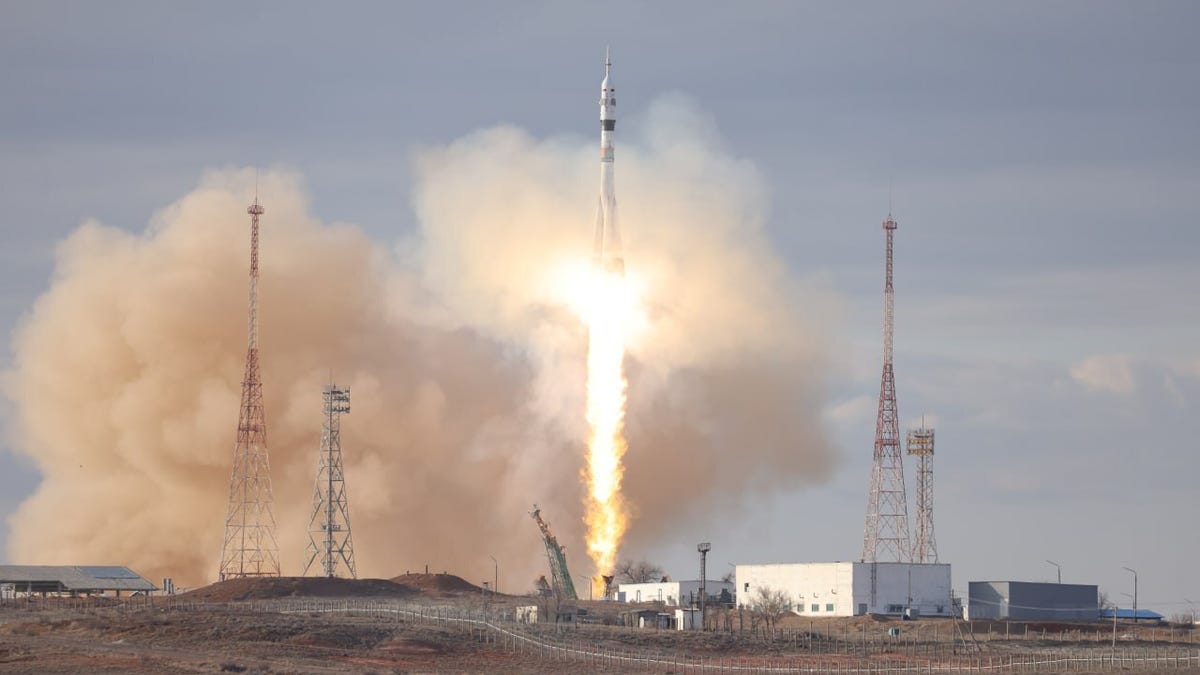
Russia’s Soyuz-2.1a, carrying the Soyuz MS-25 spacecraft, was successfully launched from Kazakhstan’s Baikonur spaceport on March 23, 2024, according to TASS News Agency. (Roscosmos/Ivan Timoshenko/Handout/Anadolu via Getty Images)
Putin, throughout the conflict with Ukraine, has dangled threats of nuclear weapons. He said that “from a military-technical point of view, we are, of course, ready,” when asked in March about a potential nuclear war.
Putin has used the threat of nuclear weapons in Ukraine as a means of preventing more direct intervention from the U.S. and other NATO allies, repeatedly stressing that any deployment of troops or similar more direct moves against Russia would be viewed as intervening in the war.
The Associated Press contributed to this report.
World
What do newly approved anti-money laundering rules cover?
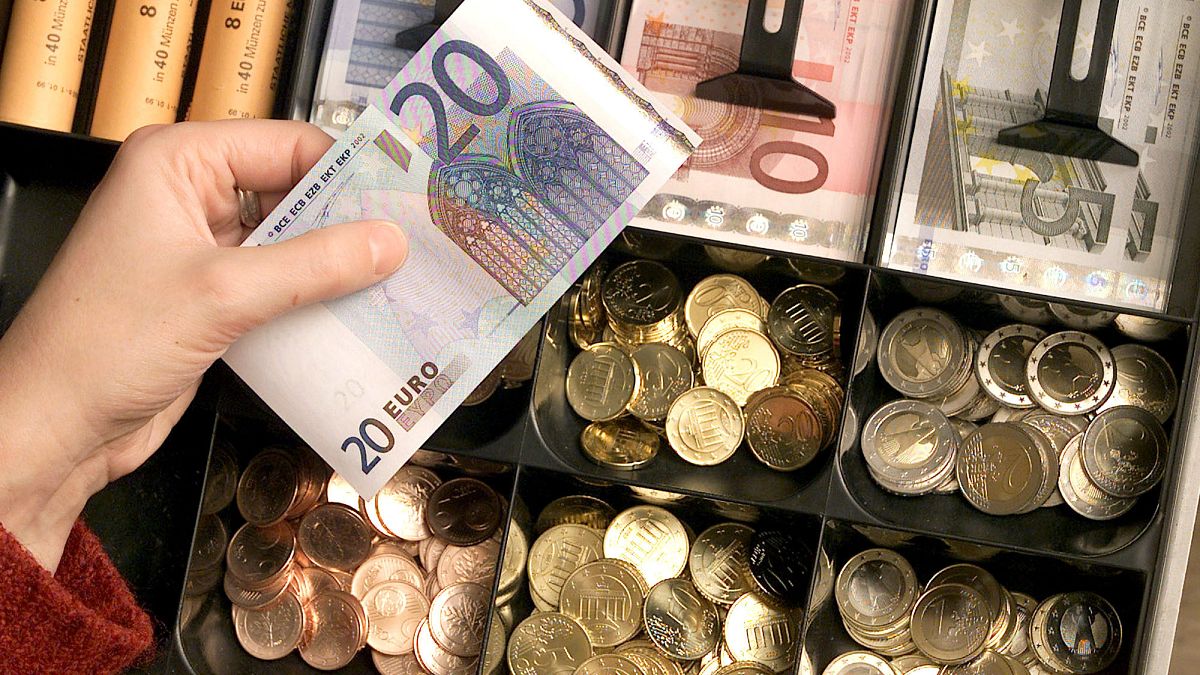
EU lawmakers voted in a landslide in favour of new curbs on crypto, football clubs and cash transactions.
EU lawmakers today voted 482 to 47 to set up a long-promised EU anti-money laundering agency, as part of a package that would also see large cash payments banned across Europe.
The move – taken by MEPs at their last voting session before June elections – means new rules apply for football deals and crypto transactions, as the bloc seeks to repair its reputation after a series of financial-sector scandals.
“Dirty money finances terrible crimes,” EU financial services commissioner Mairead McGuinness said, adding that there was an “absolute imperative to improve significantly on the current situation”.
Those views seemed largely shared across the political divide – including by Damien Carême (France/Greens), one of the MEPs who led negotiations.
Terrorists and fraudsters “exploit the loopholes in European legislation”, Carême told lawmakers. “We have to act decisively to ensure a robust system.”
What do new EU money-laundering rules do?
New rules include a limit on professional traders accepting or paying cash for any transaction over €10,000 – given that big wads of untraceable banknotes can send alarm bells over financial crime.
Some lawmakers claim that’s an attack on financial freedom.
“Keep your hands off our cash and our digital currencies,” Patrick Breyer of the German Pirate Party told lawmakers. “We Pirates say no to this creeping financial disenfranchisement.”
Yet one of the most touchy subjects of the complex package has been geographical: the question of where to house a new EU anti-money laundering agency.
After a first-of-a-kind 12-hour public hearing, German financial centre Frankfurt won out, from a slate of candidates that also comprised Paris, Rome, Madrid, Vienna, Riga, Vilnius, Brussels and Dublin.
Its 400-odd staff will directly supervise dirty-money controls at 40 of the bloc’s biggest financial institutions.
Expanded scope of new anti-money laundering laws
EU money laundering laws already apply to big institutions like banks, who are required to verify who their customers are, and report suspicious transactions to the authorities.
Those rules will also apply to high-risk sectors like traders in artwork, jewellery and luxury yachts. They’ll be extended to cover innovative services like cryptocurrency providers—as lawmakers are concerned bitcoin and other, even more anonymous assets can be used for illicit payments.
At MEPs’ insistence, the measures apply to major football clubs and agents – given the large amounts of sometimes dubious money that circulates between them.
More consistent rules
For the first time ever, the EU’s rules are set out in a regulation that will apply more or less consistently across the bloc.
That means less discretion for each country to tweak rules for the national context – creating discrepancies that make it harder for legitimate businesses to operate across borders, and easier for criminals and terrorists to exploit the system.
A separate money laundering directive, also agreed today, resolves issues over how journalists and activists can trace the financial structures used to hide wealth.
Arrangements were thrown into disarray by a shock 2022 EU court judgment that restricted access to company ownership registers on privacy grounds.
Why does the EU need new anti-money laundering rules?
Officials hope the new rulebook will help improve the EU’s reputation for dirty money, closing the chapter on a series of scandals.
Two EU members – Croatia and Bulgaria – currently sit on a “grey list” of suspect money laundering jurisdictions compiled by international standard-setter the Financial Action Task Force (FATF), and Malta was only recently taken off it.
The region also faced a series of financial-sector scandals involving institutions such as Danske Bank, Latvia’s ABLV, and Malta’s Pilatus bank.
Danske was fined billions of euros by US and Danish regulators in 2022, after admitting that around €200bn was laundered through its Estonian arm between 2007 and 2015.
EU talks were given extra salience by the need to enforce sanctions imposed on Russia for its war in Ukraine – given fears that ultra-wealthy oligarchs can use shady financial structures to evade curbs.
When will new EU money laundering rules take effect?
New anti-money laundering controls have been a long time coming, and it’s still not over.
Valdis Dombrovskis berated uneven enforcement and promised to examine a new EU agency in his hearing to become EU financial services commissioner as far back as October 2019.
After several last-minute wrangles, lawmakers and governments announced a tentative deal on the bulk of the law in January 2024.
Once nodded through by national ministers, much of the new regulation kicks in after three years, but there is some flexibility.
Rules for the football sector will take five years to apply, and the new EU agency could start work later this year – though the law setting it up takes effect formally in July 2025.
-

 World7 days ago
World7 days agoIf not Ursula, then who? Seven in the wings for Commission top job
-

 Movie Reviews1 week ago
Movie Reviews1 week agoFilm Review: Season of Terror (1969) by Koji Wakamatsu
-
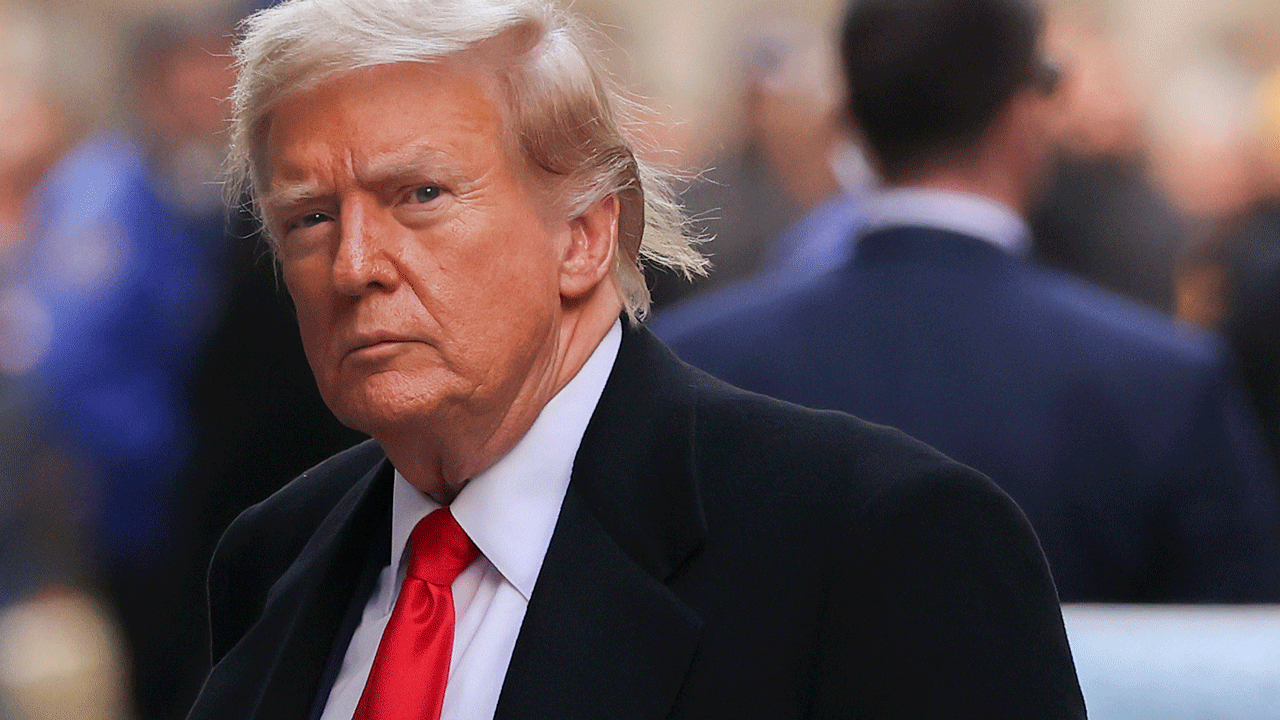
 Politics1 week ago
Politics1 week agoNine questions about the Trump trial, answered
-
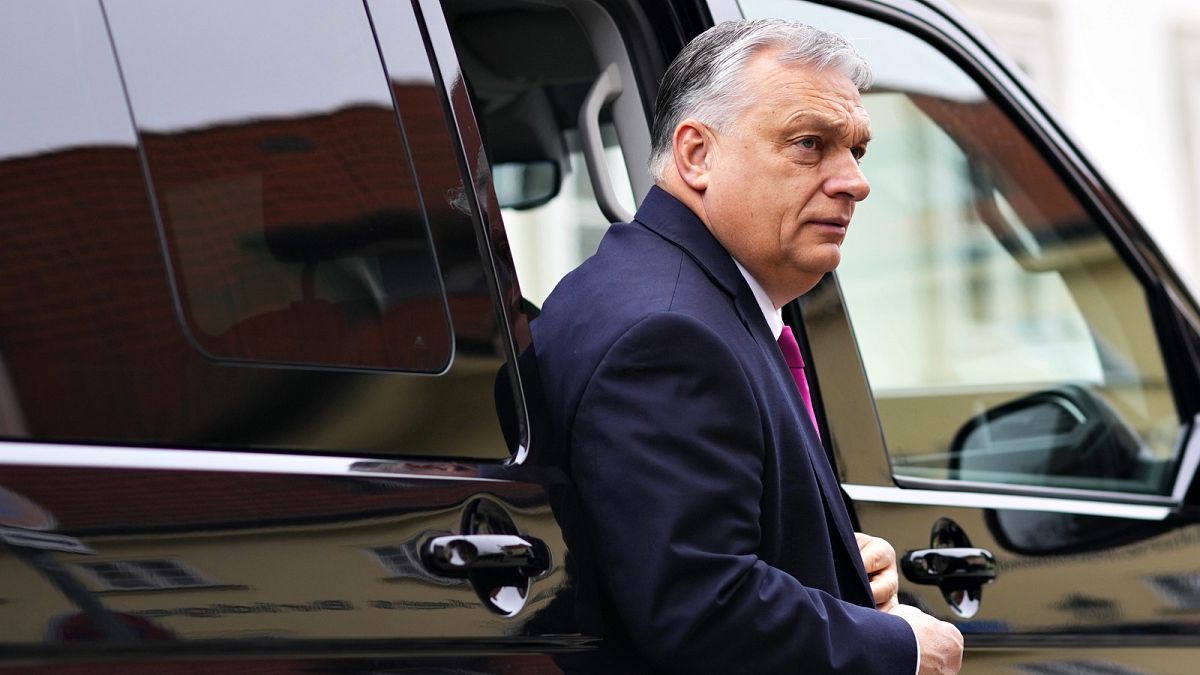
 World1 week ago
World1 week agoHungary won't rule out using veto during EU Council presidency
-

 World1 week ago
World1 week agoCroatians vote in election pitting the PM against the country’s president
-

 Politics7 days ago
Politics7 days agoTrump trial: Jury selection to resume in New York City for 3rd day in former president's trial
-

 News1 week ago
News1 week agoGOP senators demand full trial in Mayorkas impeachment
-
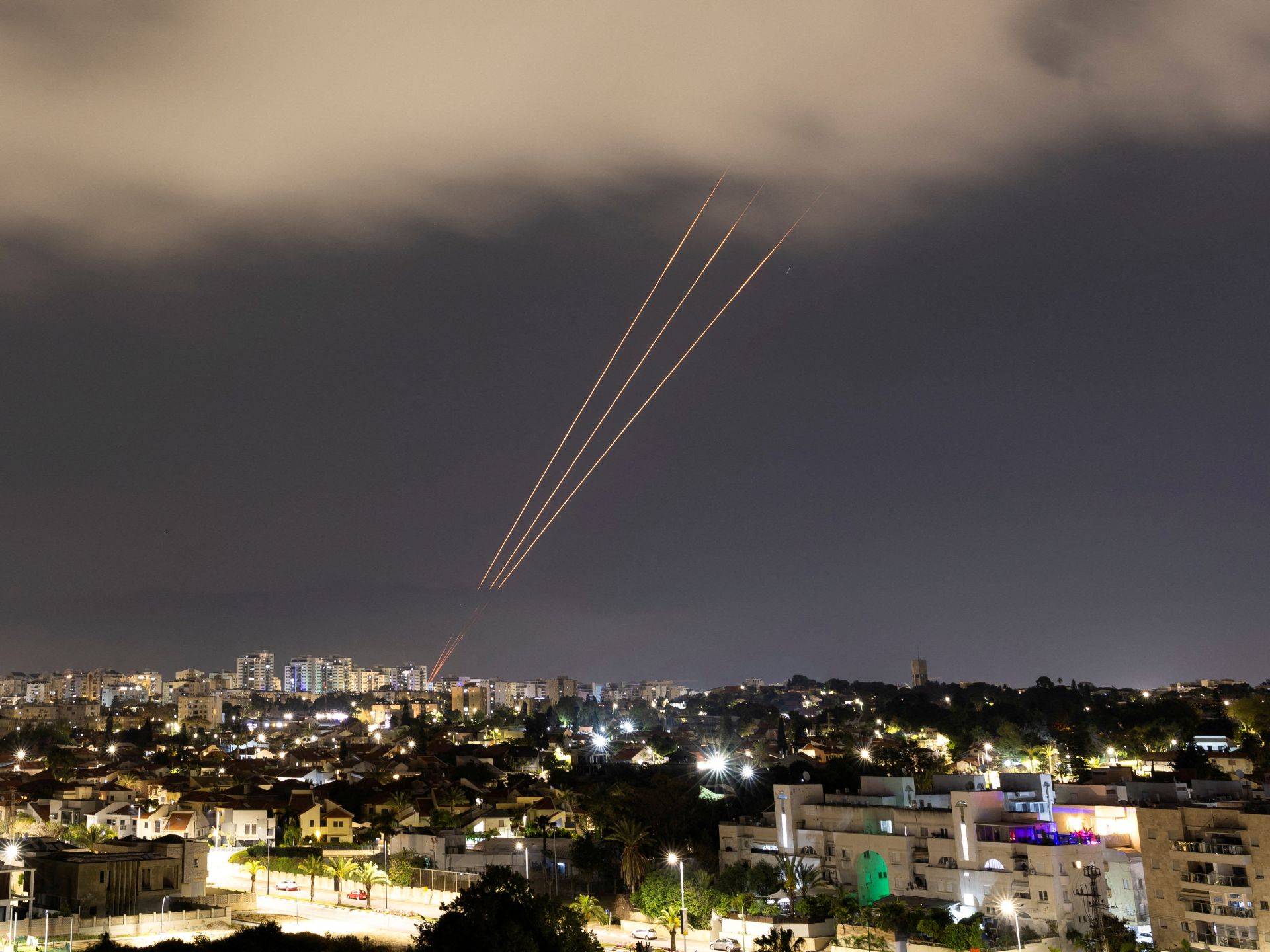
 World1 week ago
World1 week agoThe Take: How Iran’s attack on Israel unfolded
